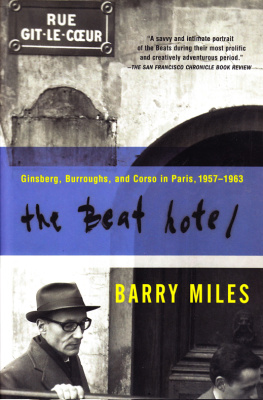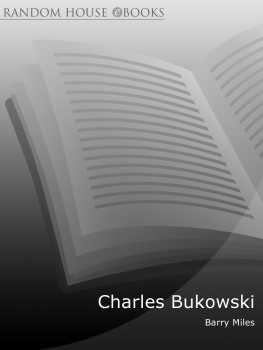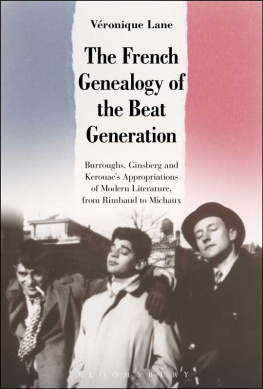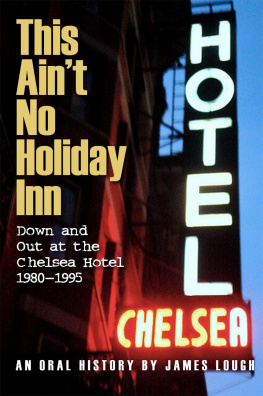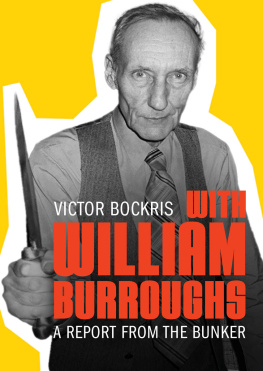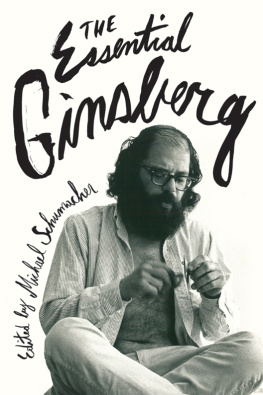
Praise for The Beat Hotel:
[The Beat Hotel was] a potent interzone of deep culture, unvarnished self-indulgence, and unbridled creativity.... Barry Miles knows his Beats, and he is a generous and salubrious host. The Beat Hotel ... is packed with visceral history, making for a nicely decadent read.
Philadelphia Weekly
Barry Miles uncovers a vein of gold in this history.
Milwaukee Journal Sentinel
'Miles exposes this previously overlooked existence of the Beat artists with accounts of their correspondence and far-out experiences with their European contemporaries. The Beat Hotel fills a biographical hole in Beat history.
Bookpage
Part scholarly study and part gossip-fest... An entertaining narrative about important writers now considered American literary heroes.
Publishers Weekly
Engrossing and enlightening... in particular [as to] how the experience affected them by providing a productive context for creativity.
Booklist
A sliver of Paris in the late 50s and early 60s.
Oregonian (Portland)
Miles... paints a vivid picture of literary life along the Left Bank in the late 1950s and early 1960s.... This is fun reading, especially for those steeped in the Beats.
Library Journal
The Beat Hotel
Also by Barry Miles
William Burroughs: El Hombre Invisible
Ginsberg: A Biography
Paul McCartney: Many Years from Now
Jack Kerouac: King of the Beats
The Beat Hotel
Ginsberg, Burroughs, and Corso
in Paris, 1958-1963
Barry Miles

Grove Press
New York
Copyright 2000 by Barry Miles
All rights reserved. No part of this book may be reproduced in any form or by any electronic or mechanical means, including information storage and retrieval systems, without permission in writing from the publisher, except by a reviewer, who may quote brief passages in a review. Any members of educational institutions wishing to photocopy part or all of the work for classroom use, or publishers who would like to obtain permission to include the work in an anthology, should send their inquiries to Grove/Atlantic, Inc., 841 Broadway, New York. NY 10003.
Published simultaneously in Canada
Printed in the United States of America
FIRST PAPERBACK EDITION
Library of Congress Cataloging-in-Publication Data
Miles, Barry, 1943
The Beat Hotel : Ginsberg, Burroughs, and Corso in Paris, 1958-1963 / Barry Miles. p. cm.
Includes bibliographical references (p. ).
ISBN 0-8021-3817-9 (pbk.)
eISBN 978-0-8021-9030-7
1. American literature20th centuryHistory and criticism. 2. Beat generation. 3. Burroughs, William S., 1914Homes and hauntsFranceParis. 4. Ginsberg, Allen, 1926Homes and hauntsFranceParis. 5. AmericansFranceParisHistory20th century. 6. Corso, GregoryHomes and hauntsFranceParis. 7. Paris (France)Intellectual life20th century. 8. Authors, AmericanFranceParisBiography. 9. Authors, American20th centuryBiography. 10. Beat generationFranceParis. I. Title.
PS228.B6 M55 2000
810.9'944361'09045dc21
[B] 00-020187
Design by Laura Hammond Hough
Grove Press
an imprint of Grove/ Atlantic, Inc.
841 Broadway
New York, NY 10003
01 02 03 04 10 9 8 7 6 5 4 3 2 1
To Allen, Bill, Brion, and Ian
Contents
Introduction
The Beat Hotel is no more. The ground-floor faade of 9, rue Git-le-Coeur has been rebuilt, and the buildingonce a decrepit rooming house with hole-in-the-floor toilets shared by all the residentsis now occupied by the Relais-Htel du Vieux Paris, with wall fabrics by Pierre Frey, individual room safes, nineteen television channels, direct-dial telephones with modems, minibar, and white marble bathrooms complete with hair driers and terrytowel robes. The narrow street, however, is little changed; each morning to this day water runs down the gutters in a complicated medieval street-cleaning system controlled by rolls of rags placed strategically at various drains, where water either bubbles up or swirls away. The ancient gray walls on either side are still chipped and patched, unchanged these forty years. The drains whiff a bit, as ever, and at the end of the lane the view across the Seine to the Palais de Justice and the thin tower of Ste. Chapelle has altered little in hundreds of years.
Nine, rue Git-le-Coeur, the Beat Hotel, is one of those legendary addresses, along with the Hotel Chelsea in New York and the Chateau Marmont in Hollywoodthese are the addresses of international bohemia. There were more: the Mills Hotel and the Albert in New York, the Swiss American and the Hotel Wentley in Sail Francisco, the Tropicana Motel in Hollywood: these were places where artists and poets lived, addresses mentioned in poems, glimpsed in blurred avant-garde movies, used as the titles of huge dripping abstract paintings, the care-of addresses on mimeographed poetry magazines, scribbled suggestions for lodging at which to stay if you ever made it out of Britain.
I was sixteen when I went to art college in England in 1959, but I had already heard of the Beats and within a matter of months I had obtained some of their writings. I was immediately attracted to their ideas and knew that these were the people I had to meet; the days of artists in garrets were long over but these people seemed to be continuing the tradition. To my regret I never visited the Beat Hotel when it was up and running. By the time I got a passport it had closed in 1963. For years I had heard travelers tales from friends, usually students who had hitchhiked to Paris in the best On the Road tradition. Fellow art students, friends, and older flat-mates would arrive back from Paris, smoking Gitanes or Gauloises, a fresh copy of Naked Lunch hidden in their shirt in the hope that customs would not find it and confiscate it.
Paris itself was an exotic location in those days. It had bars that stayed open later than the 10 P.M. closing time then in force in England. French cigarettes were stronger and more fragrant, the Metro had first- and second-class seats. One listened in astonishment to descriptions of the hole-in-the-floor toilets, open-air pissoirs, and the ladies who ran the public lavatories. Visitors described student bistros and casual jazz clubs; London had only one jazz clubRonnie Scottsand that was prohibitively expensive. They described the easygoing sex and the freely available drugs, and though we knew they must be exaggerating, it sounded a good deal more interesting than life in Britain. Everyone said the Beat Hotel was the place to stay, but if it was full, or the owner did not like the look of you, there were plenty of other, equally inexpensive places within a few blocks. Some people had actually managed to meet William Burroughs, Gregory Corso, Brion Gysin, or Allen Ginsbergalready legendary names.
My own involvement with these individuals began in 1964 when I started corresponding with William Burroughs, who was then living in Tangier. I was putting together a literary anthology called Darazt and wrote asking for material. He sent me a manuscript and we kept in touch. I met Allen Ginsberg the following year when I was managing a bookshop in London and arranged for him to read at the store. He needed somewhere to stay in the center of London and moved in with my wife and me. This was when the famous poetry reading at the Royal Albert Hall was being organized and Ginsberg was joined by Lawrence Ferlinghetti, Corso, and dozens of others to read before an audience of seven thousand or so people in July of 1965. Corso and Ferlinghetti made frequent visits to my flat to see Ginsberg, and by the end of the summer, when they all moved on, I had become friendly with them all. Later that year Burroughs moved to London and so I got to know him as well.
Next page
